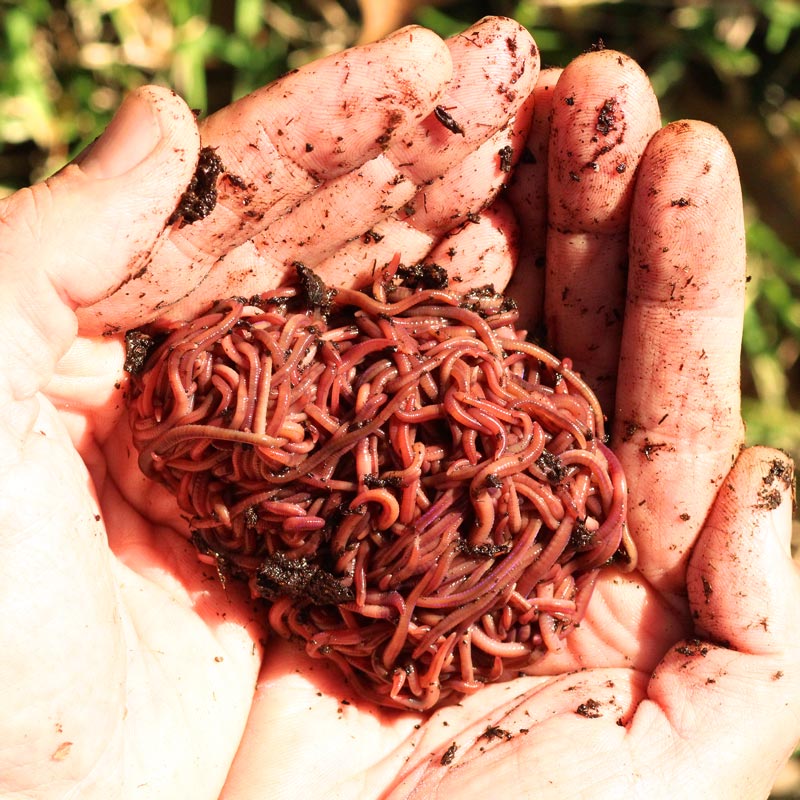Red Wiggler Worms - Reliable Decomposers for Your Garden Compost Bin
Red Wiggler Worms - Reliable Decomposers for Your Garden Compost Bin
Blog Article
Red Wiggler Worms Demystified: Unlocking the Secrets of Vermiculture for Greener Living and Nutrient-Rich Dirt
In the world of sustainable methods for improving dirt high quality and advertising eco-conscious living, red wiggler worms play a pivotal yet frequently forgotten role. These humble creatures have the remarkable ability to transform organic waste right into nutrient-rich spreadings that offer as a powerful natural fertilizer. By delving right into the globe of vermiculture, one can reveal a plethora of advantages that expand much past conventional composting techniques. Comprehending the complexities of taking care of these worms, optimizing their setting, and utilizing their spreadings can lead to a greener way of life and healthier soil for plants to thrive.
The Function of Red Wiggler Worms
Red Wiggler worms play a crucial duty in composting systems by successfully damaging down raw material right into nutrient-rich castings. These voracious eaters consume a selection of natural materials, such as cooking area scraps, lawn waste, and paper products. As they feed, the worms' gastrointestinal processes damage down the natural matter right into a penalty, dark, and nutrient-dense material called worm castings or vermicompost.
The castings generated by Red Wiggler worms are extremely valuable for dirt health and wellness and plant development. They are rich in necessary nutrients like potassium, nitrogen, and phosphorus, which are crucial for supporting healthy and balanced plant growth. Furthermore, worm castings consist of useful germs and enzymes that help boost soil structure, rise water retention, and enhance nutrient uptake by plants.
Advantages of Vermicomposting

Moreover, vermicompost, the nutrient-rich output of vermicomposting, offers as an outstanding natural plant food and dirt conditioner. It enhances soil structure, enhances soil oygenation, and boosts dirt dampness retention. These residential properties add to healthier plants with more powerful root systems and much better resistance to illness and parasites. Vermicompost likewise enhances the soil with important nutrients like phosphorus, potassium, and nitrogen, promoting plant growth and total dirt fertility.
Furthermore, vermicomposting supports sustainable horticulture practices by giving a chemical-free and natural alternative to synthetic plant foods. Red Wiggler Worms. This environmentally pleasant approach not just enriches the soil however additionally assists reduce reliance on hazardous chemicals, promoting a greener and much more lasting method of gardening
Establishing Up a Worm Container
When establishing a worm bin for vermicomposting, proper arrangement is vital to make sure the success of the composting process. The first step in establishing up a worm container is selecting a suitable see page container.
After adding the bed linens, introduce the red wiggler worms to the container. The worms must then be supplied with food scraps such as fruit and vegetable peels, coffee grounds, and eggshells.
Routinely keep track of the moisture levels and temperature level in the worm bin to make certain ideal problems for the worms. With appropriate setup and upkeep, the worm container will successfully convert organic waste into nutrient-rich garden compost for your plants and garden.
Harvesting Worm Castings
To effectively collect nutrient-rich worm spreadings from your vermicomposting system, a methodical harvesting approach is vital. There are a couple of key steps to comply with to ensure a successful process when it comes time this to collect the worm spreadings. Firstly, quit including fresh food scraps to one side of the worm container for a pair of weeks prior to harvesting. This motivates the worms to move to the side with fresh bed linens and food, making it simpler to scoop out the castings from the various other side.

Troubleshooting Common Issues
Determining and resolving typical challenges that may develop throughout the vermicomposting process is crucial for maintaining a efficient and healthy and balanced worm bin. Including excess food scraps can lead to an accumulation of wetness and acidity in the worm container, possibly damaging the worms. One more problem is unpleasant smells originating from the worm bin.
In addition, if the worm populace is decreasing or the worms show up undesirable, it can be due to environmental stress factors such as extreme temperatures or pH degrees. Monitoring these elements and making required modifications is important for the wellness of the worms. By repairing these typical issues without delay, vermicomposters can ensure a smooth and successful vermicomposting process while keeping a thriving worm populace.

Final Thought
Finally, red wiggler worms play a crucial function in vermiculture by breaking down natural issue into nutrient-rich dirt. The advantages of vermiculture include greener living and boosted dirt top quality. Establishing a worm container is necessary for effective vermiculture, and harvesting worm castings gives valuable garden compost for gardening. By you could try this out understanding and troubleshooting common concerns, people can unlock the keys of vermiculture for lasting living and healthier dirt.
As they feed, the worms' digestive system procedures break down the organic matter right into a fine, dark, and nutrient-dense material understood as worm castings or vermicompost.
The castings produced by Red Wiggler worms are highly useful for soil health and plant development. Adding excess food scraps can lead to an accumulation of wetness and acidity in the worm bin, possibly harming the worms.Furthermore, if the worm populace is declining or the worms show up harmful, it might be due to environmental stress factors such as severe temperature levels or pH degrees. Setting up a worm bin is essential for effective vermiculture, and collecting worm castings gives valuable compost for horticulture.
Report this page